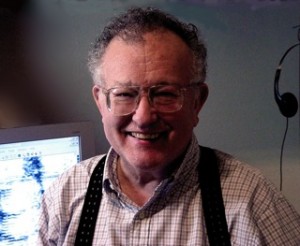
By Laurie Devine
McGill’s strength in speech/linguistics and the neurosciences was very much evident in the past few weeks as illustrated by these McGill researchers in the news:
Inspiring teacher
Stephen Pinker does not see his former teacher Albert Bregman as a role model. The renowned author (The Language Instinct; The Blank Slate; How the Mind Works) and Harvard psychologist thinks his own style as a modern lecturer-entertainer with an audiovisual razzle-dazzle presentation style shares no resemblance whatsoever to Bregman “sitting at a table and rambling off the top of his head.” He does, however, think Bregman was the smartest person he’d ever met as a student at McGill in the 70s, when Bregman mentored him in cognitive psychology. Pinker writes in the New York Times Magazine: “Decades later I can remember Al’s musings: circling an idea, linking it with others, trying different vantage points, exploring variations on a theme. It was all a revelation.” Professor emeritus Albert Bregman is considered one of the leading figures in auditory perception research and, according to Pinker, the philosopher who set him on a career of trying to understand how the mind works.
Rock star reviews
“Neuroscientists may be the rock stars of 21st-Century science, but how many of them actually have platinum records to their credit?” An article in the Sept. 21 issue of Newsweek opened with this question and answered it by interviewing McGill’s own Daniel Levitin, a professor in the Department of Psychology who has also worked as a producer and recording engineer for such artists as Stevie Wonder, the Grateful Dead, Santana, Chris Isaak and Blue Öyster Cult. With the release of his new book, The World in Six Songs, Levitin’s work has been enjoying significant coverage in major newspapers including New Scientist, The Financial Times, Boston Globe, New York Magazine, Variety and The Los Angeles Times. The latter praised Levitin’s recent offering, calling it “…a book that aims to prove that music doesn’t just make us feel good, our brains use it to organize society. From opera to Abba to Zappa, Levitin elegantly reveals how songs build friendship, joy, comfort, knowledge, religion, and love.”
Oral memories
“When a child learns to talk, it gets two kinds of information. One is the auditory information, being the sound of its own voice. At the same time, it also gets information from receptors that are in the skin and in the muscles,” McGill’s David Ostry told Agence France Press (AFP). Ostry and his psychology department colleague Sazzad Nasir found that speech is learned partly through nerve signals from the vocal tract. The McGill researchers were studying why many people who become deaf can still speak intelligibly a long time after losing their hearing. Muscles and receptors in the mouth and throat seem to ‘remember’ their position and feel when a word is spoken; their subsequent signals are crucial in helping the brain develop the power of speech. The study focused on the muscles of the jaw and facial tissues, but the researchers say these mechanoreceptors may also exist in the lips, tongue and larynx. The results of the research were reported by Nature Neuroscience and later by New Scientist, The Gazette, and the CBC, among others.
CAPTIONS:
